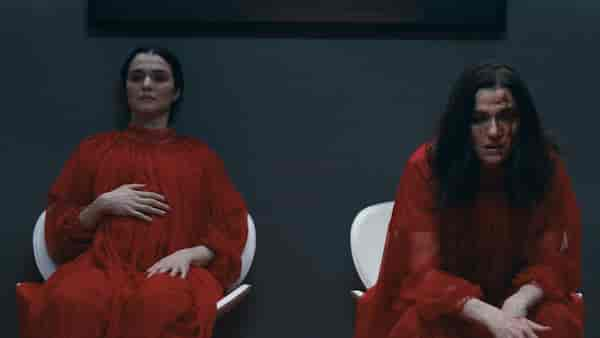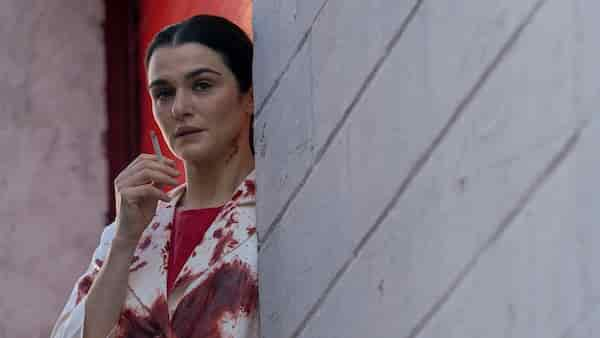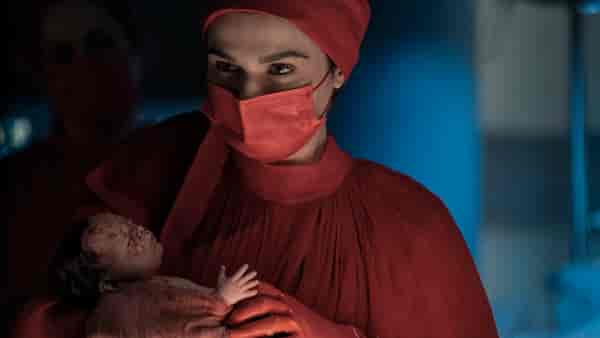Newsletter | Dead Ringers: Rachel Weisz Births A Bloody Classic
The actress plays a pair of twins: gynaecologists wrangling over medical ethics in their quest to change the way women give birth. Harsh Pareek writes.

Last Updated: 05.47 PM, May 04, 2023
EVERY ONCE IN A WHILE, you come across a performance so singularly dominating and electrifying that it envelops an entire project, becomes decisively its identity and at times its sole redeeming characteristic. Rachel Weisz delivers one such for Amazon's six-part miniseries, the psychological thriller drama Dead Ringers.
Born out of the acclaimed 1988 film of the same name by David Cronenberg — itself adapted from the 1977 novel Twins by Bari Wood and Jack Geasland — the development of the show, unsurprisingly, came with some expectations. Not only did the film showcase one of Cronenberg's best turn behind the camera, but also featured a pheromonal, career-highlight performance by Jeremy Irons, in the twin role of Beverly and Elliot Mantle. To say nothing of the twisted and unsettling plot which was equal parts drama, thriller, horror, and as one character puts it, psycho-sexual.
But just as Weisz steps into the shoes of the Mantle twins with breathtaking authority, in the hands of series developer Alice Birch (something of a specialist when it comes to adaptations: Lady Macbeth, Mothering Sunday, The Wonder), the story finds fresh ground to stand on its own. While the core premise remains the same — we follow the twin gynaecologists as they wrangle over medical ethics in their quest to change the way women give birth, all the while as their personal lives begin to spiral out of control — the show builds on it a fresh tale of convoluted desires.

Brilliant in their own right, ambitious and foul-mouthed, while the two sisters share some common traits, their personalities are also at odd with each other. Elliot is the bolder of the two, the risk-taker, the one for who ethics mean little in the face of scientific progress. Meanwhile, Beverly is meeker, more mature, and an idealist, always conflicted over the morality of the means to an end. Things become dangerously complicated when into the fray are introduced Genevieve (Britne Oldford), a TV actress Beverly falls for, to Elliot's increasing vexation; and Rebecca (Jennifer Ehle), a rapacious billionaire investor in their new birthing centre, who would make even the Roys blush. While the twins are quite wealthy themselves, Rebecca is in a league of her own, constantly forcing them to push their practice beyond conformity.
Within these characters, the show finds room to expand beyond Cronenberg's feature and also introduce modern themes and sensibilities. For there is little in terms of a plot or a deep enough storyline for its almost six-hour runtime (but more on that in a second). Apart from the twin's almost-paradoxical reliance on and conflict with each other, at work and at home, one of the major themes the show picks up on is the profitisation of healthcare and, in turn, a system that not only caters largely to the vain whims of the very rich, often at the cost of economically weak (the practice of surrogacy looms large). Or in a broader sense, the rich versus the poor narrative, that has been of late a theme-of-choice to explore throughout the industry, and popular culture at large.

In the meantime, the show also features some of the most graphic birthing scenes ever put on screen and never shies away from the blood and guts. Away from the operating table, it also tries to grapple with the broader trials and tribulations women face when it comes to having babies, all the while also leaning into a more sci-fi-ish element of pushing the boundaries of what is biologically possible. The speculative here works as a counterbalance to the more grounded subjects, which extend to race, sex and politics.
All that is not to say the show doesn't have its fair share of faults. The supporting cast, although hardly dull, often comes off as one-tone... characters stuck on a loop, incapable of springing a surprise or defying expectations. And while the show attempts to constantly juggle a range of themes, as previously mentioned, they don't always quite land. Even the rich eating the poor narrative begins to strain under the weight of exaggerated characters and the fact that after a while, Beverly's empathic rationality begins to feel little more than lip service, who in her own privileged position almost always ends up choosing to exploit.

But perhaps the neatest trick the show manages to pull off is how watchable and exciting it comes across as, considering that very little happens in terms of plot progression in each episode until we get to the closing stages. Part of it, expectedly, has to do with Weisz's unhinged acting chops, which are difficult to take your eyes off, but also with how well the series is shot, not to mention a carefully put-together soundtrack. Together, what might have been otherwise mundane, even tedious, sequences are elevated to some of the most fun, not-to-be-missed television out there. Simultaneously, the same elements manage to draw attention away from and smooth over any wrinkles along the sideways.
At length, despite its flaws, Dead Ringers ends up being a captivating ride, with a generous spattering of blood and dark humour. And while it might not be as unnervingly hypotonic as the 1988 film, it doesn't really have to be, for it has its own tour de force protagonist to flaunt. So much so that, when it comes down to it, Dead Ringers is Rachel Weisz — draped in red, knives at the ready.

 Premium
Premium